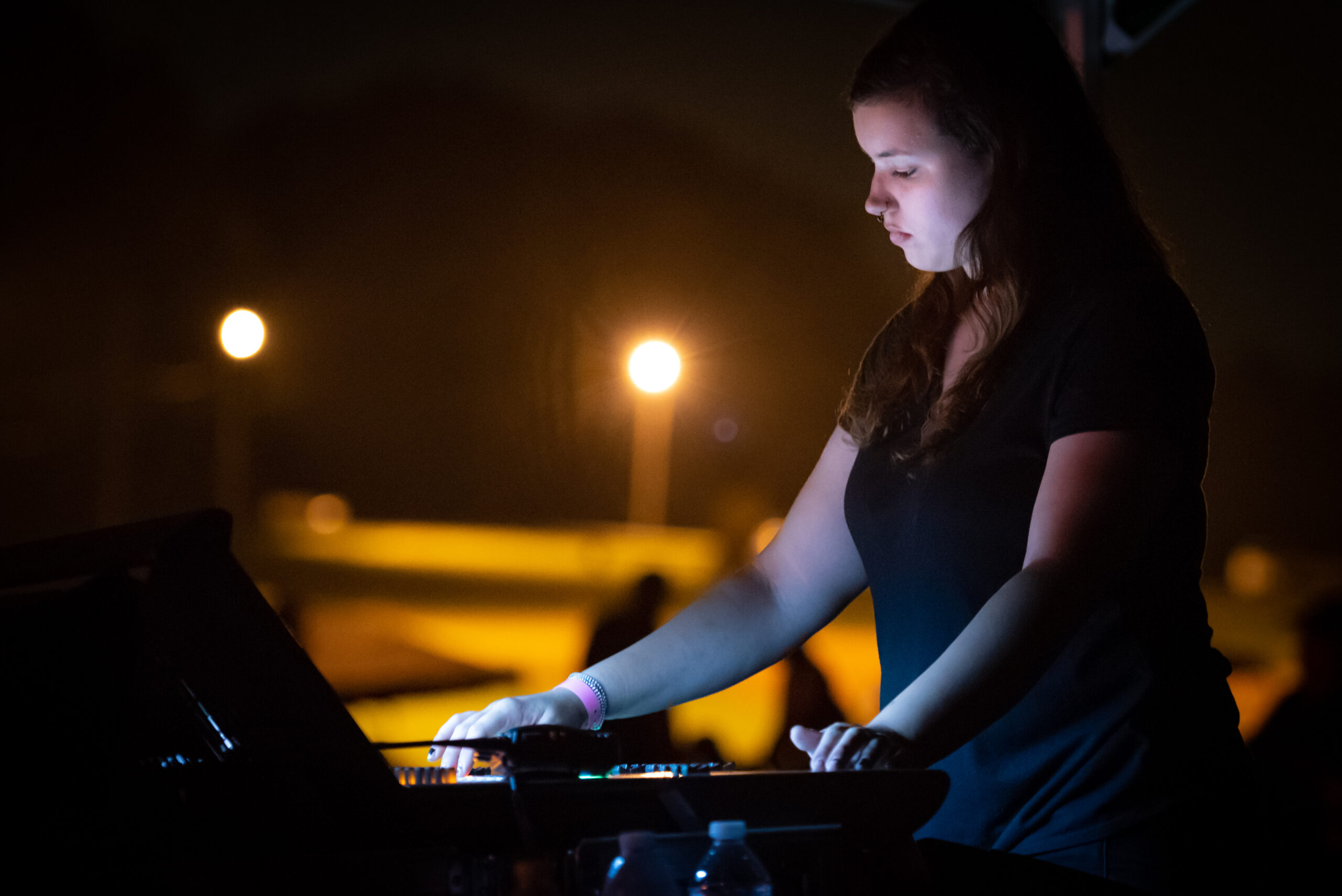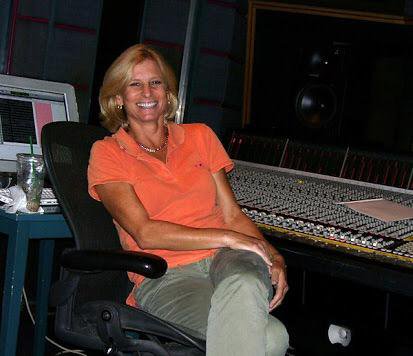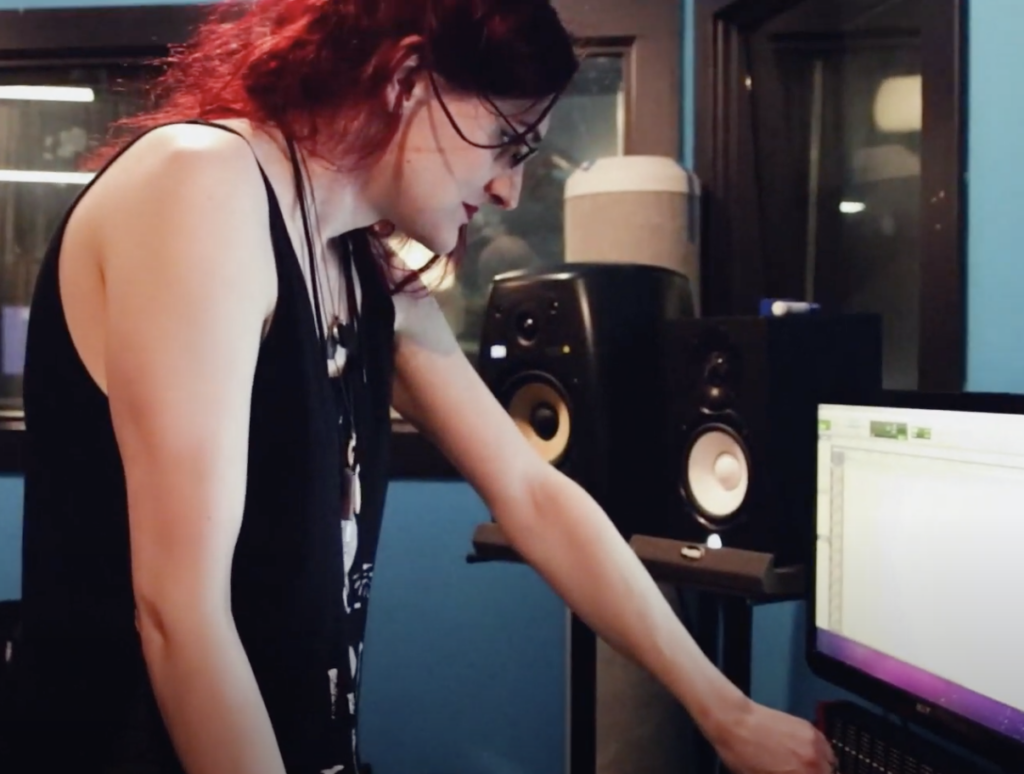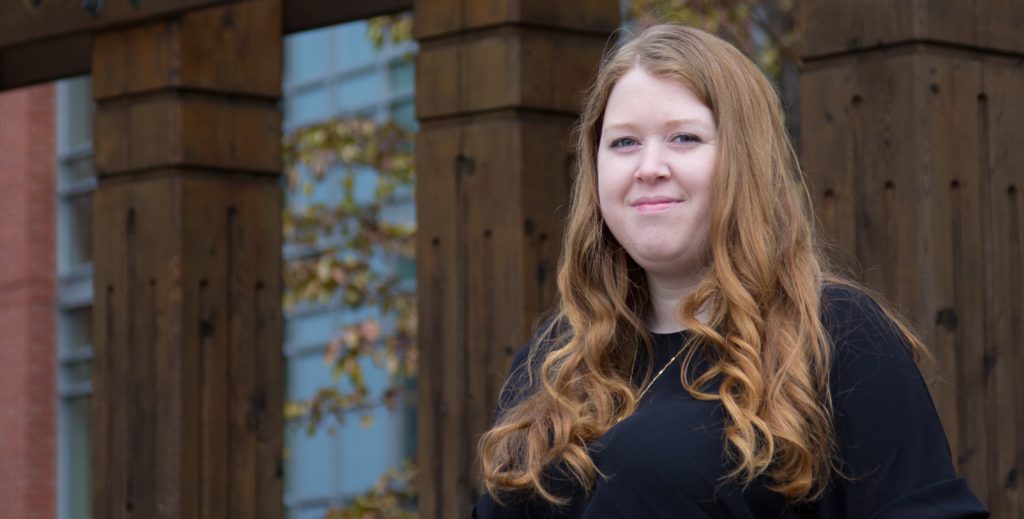Carolyn Slothour is an up-and-coming independent FOH and Monitor engineer, who has been working in the industry for just over five years. She works as an A1 and A2 at a few production companies based in Pittsburgh and Philadelphia, including a company called Zero Fossil which is a clean energy/solar-powered production company. She is the house engineer at a local venue called Brillobox and fills in at several other local venues while not on the road. The past year she has been touring as FOH, tour manager, and playing flute with a variety of artists including Mija, !!! (Chk Chk Chk), Alison Sudol, & a rock theatre group called Squonk Opera. She has several tours planned for 2020 as well.
Carolyn has always been passionate about playing & performing music and decided to move from New Jersey to Pittsburgh to attend college at the California University of PA to follow her love of music, while not really knowing what path she would ultimately take within the industry. The Music Technology Bachelor’s degree she received covered a wide range of things, including music performance & theory, music business, and recording & live sound technology. During her time in college, she interned at a recording studio and production company. While interning, Carolyn discovered she was most passionate about live sound. Having attended and performed in live concerts throughout her life, she says “I realized it made sense for me to work in an environment I’ve always loved and felt at home in from the start.” From there she started picking up freelance sound gigs and has been building her diverse resume of audio work since.
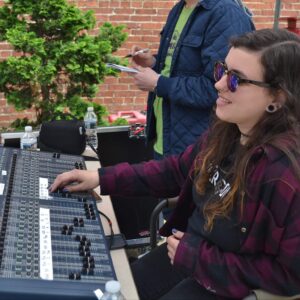 Her current goals are to mix at more large-scale festivals and continue to grow in many different ways. “I have always loved to attend festivals, and working them has become some of the best times of my life, despite the usual “throw-and-go,” high-stakes style mixing at them tends to be. I enjoy the rush and the feeling of accomplishment when it all comes together. I also hope to continue to grow in several different areas of the music industry – including live sound, performance, studio engineering, sound design, composition, and production. I love to learn and I don’t plan on stopping anytime soon.”
Her current goals are to mix at more large-scale festivals and continue to grow in many different ways. “I have always loved to attend festivals, and working them has become some of the best times of my life, despite the usual “throw-and-go,” high-stakes style mixing at them tends to be. I enjoy the rush and the feeling of accomplishment when it all comes together. I also hope to continue to grow in several different areas of the music industry – including live sound, performance, studio engineering, sound design, composition, and production. I love to learn and I don’t plan on stopping anytime soon.”
Can you tell us about a tour or show that you’re proud of? A challenge that you pulled off?
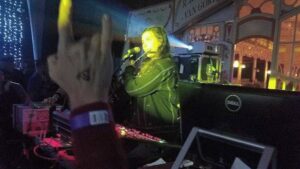 My last FOH tour with !!! (Chk Chk Chk) was one that I’m very proud of because I was able to combine my two passions – mixing FOH & playing the flute. When I first met the band, they asked if I would be interested in playing flute with them on a couple of songs of theirs. I was absolutely interested and ended up playing flute on 2-3 songs every night from FOH. It could be a little challenging at times to take my focus away from mixing and put it on performing, but playing the flute is like second nature to me and it felt great to play in front of large audiences with such a great group of musicians. I’m a huge fan of their music, so it was definitely the most fun I’ve ever had at work. I also recently mixed FOH for Mija at Corona Capital Music Festival in Mexico City, along with some extremely talented musicians & engineers. The festival brings in around 146,000 people, so that was a pretty special gig for me as well.
My last FOH tour with !!! (Chk Chk Chk) was one that I’m very proud of because I was able to combine my two passions – mixing FOH & playing the flute. When I first met the band, they asked if I would be interested in playing flute with them on a couple of songs of theirs. I was absolutely interested and ended up playing flute on 2-3 songs every night from FOH. It could be a little challenging at times to take my focus away from mixing and put it on performing, but playing the flute is like second nature to me and it felt great to play in front of large audiences with such a great group of musicians. I’m a huge fan of their music, so it was definitely the most fun I’ve ever had at work. I also recently mixed FOH for Mija at Corona Capital Music Festival in Mexico City, along with some extremely talented musicians & engineers. The festival brings in around 146,000 people, so that was a pretty special gig for me as well.
Can you tell us about failure and what you learned from it?
I wouldn’t necessarily call this a failure, but one mistake I made recently was creating a show file at a venue while on tour within someone else’s show structure. It all worked fine until I loaded it up at the next venue with that same console, & there was a lot of basic setup that did not work for the new venue. The house engineer and I spent a while trying to figure out why a variety of things did not work correctly and I ended up finding that certain settings were set very strangely when the show file was initially created. After all that trouble, the show ended up sounding great and it was a good night. But I definitely learned the hard way to only travel with show files that I personally created from the start.
What do you like best about touring?
My favorite thing about touring is that every day is never exactly the same as the last. There are always different challenges & different people, in a different place, so it’s never boring. It’s taught me to take life one day at a time – not only in my career but in all aspects of my life. It can be a stressful job, but it also takes a certain amount of ‘letting go’ and just going with the flow. And I feel really lucky that my career enables me to travel around the globe and see places that many people only dream of.
What do you like least?
My least favorite part about touring is being away from my cat, & not being able to focus on playing music & my other interests as much as I’d like. I try to make time for my hobbies on the road as much as possible though.
What is your favorite day off activity?
My favorite day off activities is finding crystal shops & beautiful nature spots where I can relax and spin poi or play the flute. I also enjoy searching for good vegan restaurants in whatever city I’m in.
What, if any, obstacles and barriers have you faced?
Freelance audio is a competitive industry, and every engineer has to prove themselves in order to build a reputation. Sometimes it’s a little harder to prove myself to those who may not have faith in women to do a great job, but it’s to be expected when less than 5% of audio engineers are not men. Women tend to be held to a higher standard, but that is a blessing in many ways. We work harder and better in order to make it. If you’re truly passionate about your job & have a solid work ethic, you won’t have trouble finding gigs.
How have you dealt with them?
I’ve grown a thicker skin since I started freelancing. As in any job, there are people who are unpleasant to work with or don’t believe you will do well. The key is to focus on your own work & put in 100% effort so that they have nothing negative to say after seeing/hearing you do your job well. It’s important not to compare yourself to other engineers because everyone is on a different path and will come across opportunities at different points. Having a positive attitude helps immensely.
The advice you have for other women who wish to enter the field?
Take the time to learn the basics and do prep work – read manuals, ask questions, & have the initiative to figure things out on your own. Then when you’re put in front of a new console, or any new piece of hardware or software, you’ll have some base knowledge to figure out how it works quickly. Never be discouraged by your lack of knowledge. Most of the learning you’ll do will be on the job, so try not to worry too much about what you do & do not know. No engineer knows EVERYTHING. It’s also very important to not have an ego about your knowledge and experience because it will keep you from learning and is generally just a bad attitude to have. There’s always something to be learned from a situation, as well as from fellow engineers. Plus, the more knowledge you have, the more you’ll realize how much more there is to learn. As long as you keep the drive to learn & adapt, you will go far.
Must have skills?
Communication & social skills are a must – those were honestly the hardest ones for me starting out because I was always a fairly withdrawn & antisocial child. But it’s the key to getting a lot of gigs. You must be friendly, understanding, easy to get along with, and able to stay calm in stressful situations and never place blame. Generally, people will hire someone they like before someone they don’t, even if they’re a little less competent. Adaptability is also a very important skill – when you work with different people & different sound systems every day, you have to be able to work with many types of personalities and limitations.
Favorite gear?
I’m a huge fan of analog consoles and gear in general because it tends to sound really great right off the bat. I always enjoy mixing on the classic Midas H3000, and I’m a sucker for good outboard compressors. As for digital consoles, my favorite brand is DiGiCo because they have the power to do pretty much anything I want. I’m a firm believer that if something sounds bad through a sound system while completely flat, you should change the mic first – so great mics are very important to me. I’m currently in the process of building my personal mic closet, so I enjoy testing out different mics that venues have in-house. My favorite combination of microphones varies from artist to artist depending on the sound I’m going for, but it’s usually a mixture of Sennheiser & Audix microphones. My favorite kick drum mic combination is a Shure Beta 91a inside, and an Audix D6 outside.
